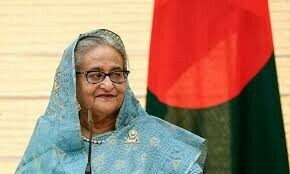India’s top diplomat will head to Bangladesh on Monday after the student-led revolution in August that toppled autocratic ex-premier Sheikh Hasina’s government in Dhaka soured ties between the two neighbours.
Hasina’s iron-fisted rule was strongly backed by India and the 77-year-old remains in New Delhi where she took refuge after her ouster, despite Bangladesh announcing it would seek her extradition.
Nobel laureate Muhammad Yunus, who is leading an interim government tasked with implementing democratic reforms, has condemned acts of “Indian aggression” that he alleged were intended to destabilise his administration.
Indian foreign ministry spokesman Randhir Jaiswal confirmed on late Friday that his department’s secretary Vikram Misri would visit Bangladesh on Monday.
Misri “will meet his counterpart and there will be several other meetings during the visit,” Jaiswal told journalists in New Delhi.
Yunus, 84, faced numerous criminal proceedings during Hasina’s regime that her critics say were concocted to sideline one of her potential rivals.
He has been a vocal critic of India for backing Hasina’s rule to the hilt despite the mounting rights abuses seen over her 15-year tenure.
India for its part has accused Muslim-majority Bangladesh of failing to adequately protect its minority Hindu community from reprisals.
The arrest of a prominent Hindu priest in Bangladesh on sedition charges last month further added to tensions, with Prime Minister Narendra Modi’s right-wing supporters urging his government to take a more hardline stance on Dhaka.
“We want to reiterate our position again that they have legal rights and we hope that these legal rights will be respected and that the trial will be fair,” Jaiswal said of the case.
Yunus’s administration has acknowledged and condemned attacks on Hindus, including during the chaotic hours after Hasina’s ouster, but said that in many cases they were motivated by politics rather than religion.
He has accused India of exaggerating the scale of the violence and running a “propaganda campaign”.
“They are undermining our efforts to build a new Bangladesh and are spreading fictitious stories,” Yunus said this week.
Numerous street demonstrations have been staged against India in Bangladesh since Hasina’s ouster.
Several rallies were held this week to protest an attempt by Hindu activists to storm a Bangladeshi consulate in an Indian city not far from the neighbours’ shared border.
India condemned the breach afterwards and arrested seven people over the incident.
Despite cratering diplomatic ties the two neighbours are key economic partners with annual bilateral trade worth about $14 billion.
















































Dear visitor, the comments section is undergoing an overhaul and will return soon.